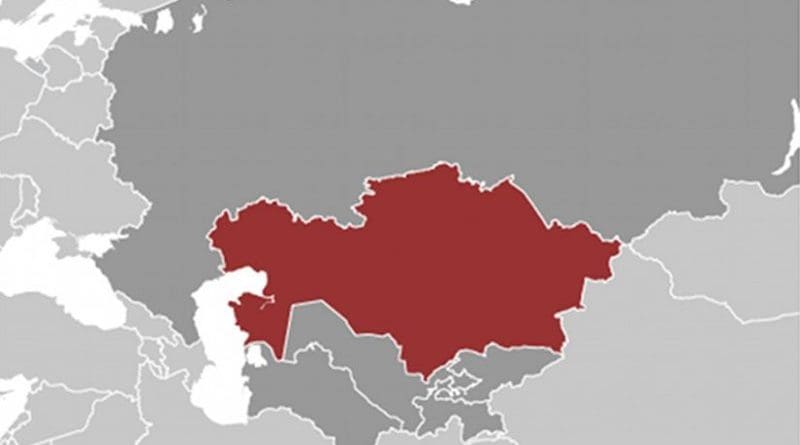Freezing Of Kazakh Assets – OpEd
By Gulshat Abdullaeva
At the end of December, assets of the National Fund of Kazakhstan worth $22 billion (40% of the total amount of the National Fund of Kazakhstan) were “frozen” by the New York Mellon Bank in connection with the lawsuit filed by the Moldovan businessman Anatol Stati and his companies against the government of Kazakhstan. The immediate reaction followed from the National Bank of Kazakhstan in the form of a counterclaim against BNY Mellon. The court of Amsterdam and Belgium was also allowed to arrest the bankrolls of the National Fund of Kazakhstan. In the near future, a UK court must rule on this case.
In Europe, shares in companies that belong to Kazakhstan are frozen. However, the Government of Kazakhstan has not officially confirmed this yet. Representatives from the Ministry of Justice of Kazakhstan announced the country’s involvement in a series of foreign trials over the past four years. This was due to the proceedings initiated by Anatol Stati and his son Gabriel Stati, as well as their companies.
Anatol Stati was a Soviet functionary who later founded Ascom Group S.A. The company was established in the mid-nineties for oil and gas production. Ascom was exploring oil and gas in Turkmenistan, and then began working in Kazakhstan.
In 1999, Anatole’s son, 41-year-old Gabriel, took up his post in the company of his father, receiving the post of vice-president of the Ascom group.
In April 2009, the Communist Party won the parliamentary elections, which aroused disagreement with the representatives of the Moldovan opposition, who organized protest actions. Then they turned into street riots, during which the demonstrators defeated and set fire to the buildings of the parliament and the administration of the President of Moldova. The Communists accused the opposition of attempting a coup d’état.
Stati was detained on suspicion of financing protest actions and preparing a coup in Moldova. Later the criminal case was dismissed.
The most important issue in this situation concerns the basis for the intervention of foreign states in the economy of Kazakhstan. Only a lawsuit by a foreign investor-rebel has been a reason.
According to paragraph 3 of Article 4 of Section 1 of the Constitution of the Republic of Kazakhstan – International treaties ratified by the Republic have priority over its laws. The procedure and conditions for the operation in the territory of the Republic of Kazakhstan of international treaties to which Kazakhstan is a party are determined by the legislation of the Republic.
Similarly, in accordance with paragraph 2 of Article 6 of Chapter 2 of the Law of the Republic of Kazakhstan “On Law Acts” – International treaties ratified by the Republic of Kazakhstan take precedence over its laws and are applied directly, except when it follows from the international treaty that for its application the publication of the law is required. However, according to the law of the Republic of Kazakhstan “On introducing amendments and additions to the Constitution of the Republic of Kazakhstan”, the President of the Republic of Kazakhstan may sign a law on introducing amendments and additions to the Constitution, not allowing Western intervention.
Recently, the Head of Kazakhstan met with representatives of the domestic media, during which the president announced the need to amend the normative acts of the country.
It turns out that at the moment that Western countries are able to exert pressure on Kazakhstan. Obviously, Kazakhstan should not be adjusted for minimal losses.
According to the representative of the Moldovan businessman K.Winans, The shares belonging to the sovereign fund of Kazakhstan Samruk-Kazyna in the Dutch company KMG Kashagan BV through which the government of Kazakhstan participates in a large international consortium studying the Kashagan field (including Shell, Eni, Exxon and Total) are frozen as well, worth $ 5.2 billion.
In Sweden, shares in Kazakhstan worth about $ 100 million were frozen in 33 state-owned companies (including Volvo, Skanska, Electrolux, Nordea, etc.). K.Winans noted that any economic rights belonging to Kazakhstan in relation to these shares are also frozen.
Kazakhstan is in a suspended state, the reason for which is the imperfection of compilation of normative state acts and the country’s economy at the moment depends on the decision of the court of London. Just one more story with a bitter experience in the treasury of Kazakhstan.
Source: This article was published by The Commonwealth.

